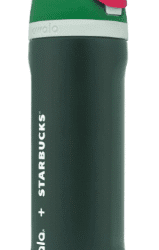According to product intelligence platform Vypr, a significant 39% of consumers are cutting back on chocolate eggs this year, while 24% plan less than £5 in on Easter gifts.
While health concerns have led 29% of consumers to scale back their Easter egg purchases, sustainability is a factor for many shoppers. The desire for more eco-friendly options is evident for some, as 17% of people are looking to choose gifts with less packaging, and another 17% are prioritising items wrapped in less plastic. Additionally, 15% are opting to skip Easter altogether this year to avoid contributing to waste.
Despite these preferences, many shoppers are still planning to spend this Easter, although most say it’s going to be very low key, with the majority (53%) expecting to spend less than £10 in total, covering gifts, decorations, and entertaining.
Encouragingly for retailers, over a third (35%) of consumers plan to spend between £10 and £50.
Chocolate eggs will still play a key part in these purchases, but for some, alternatives are gaining popularity. Cash gifts (10%) and toys (9%) are among the most popular choices. Additionally, 10% are looking for chocolate that isn’t egg-shaped, while 8% will be buying Easter decorations.
Many supermarkets, convenience stores and wider retailers have expanded their range of Easter decorations this year, with 21% of shoppers saying they have noticed the increased variety. However, only 8% report that this is likely to persuade them to purchase. Overall, 54% of people do not decorate for Easter, and of those who do, 14% plan to reuse last year’s decorations, while only 10% will buy new ones.
Ben Davies, founder of Vypr, said: “Retailers have plenty to consider when planning their 2026 Easter ranges. A quarter of shoppers are looking to gift-wrap Easter presents this year, making Easter-themed wrapping paper a clear opportunity to drive sales. Meanwhile, one in ten plan to buy Easter-themed clothing for children – which is something supermarkets could tap into to boost seasonal sales.
“Sustainability is also becoming a bigger priority for consumers, and demand for eco-friendly alternatives will only grow. This is a key area for NPD teams to explore, ensuring their ranges appeal to increasingly eco-conscious shoppers.”
Vypr conducted the nationally representative research with over 1,800 UK consumers in March 2025.







